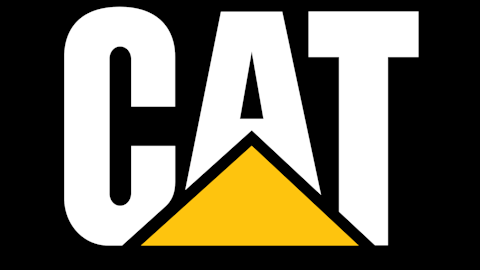On the first day of its trading, Chemours Company (NYSE:CC), E I Du Pont De Nemours And Co (NYSE:DD)‘s spin off comprising its performance chemicals segment, appreciated by about 3.19%. DuPont shareholders received one share of Chemours for every five DuPont shares that they held as of June 23. A recent success story in the specialty chemicals industry is that of Axalta Coating Systems Ltd (NYSE:AXTA), another company which was once a part of DuPont, known at the time as DuPont Performance Coatings. Axalta Coating Systems Ltd (NYSE:AXTA) held its IPO in November last year and the stock has appreciated by more than 57% since then, despite modest gains of 9.33% for the industry on a year-to-date basis. Could Chemours Company (NYSE:CC) follow suit and deliver such towering returns as Axalta in the future? JP Morgan, which initiated coverage on Chemours with an ‘Underweight’ rating thinks not. The bank fears that owing to negligible cash flow generation, the company will have to borrow money to pay its initial $100 million quarterly dividend, which it also suspects will have to be cut in due time. Credit Suisse is on board with JP Morgan on the company’s bleak outlook and is also concerned about the large legal liabilities that it is embroiled in, which will follow it from DuPont; lawsuits have been filed against the company’s fluoropolymer products, and environmental fines of $295 million could potentially double according to Credit Suisse.

Let us first take a look at where the professional money managers stand on the former parent company, E I Du Pont De Nemours And Co (NYSE:DD). Among the hedge funds that we track, the interest in the company increased over the first quarter as 36 firms had invested about $2.18 billion in the company at the end of March compared to 31 funds with $2.34 billion at the end of the previous quarter. Share price dropped by about 4% during the March quarter, so if you look closely at the figures, hedgies have pulled out a small amount of capital from the company, despite the bump up in overall ownership. Nelson Peltz‘s Trian Partners and Phil Gross and Robert Atchinson‘s Adage Capital Management are the largest stockholders of E I Du Pont De Nemours And Co (NYSE:DD) among these firms, with respective holdings of 24.56 million shares valued at $1.76 billion and 1.37 million shares valued at $98.11 million. On the other hand, hedge fund interest in Axalta Coating Systems Ltd (NYSE:AXTA) increased during the first quarter as 26 funds had invested a total of $455.86 million in the company at the end of March, as compared with 23 firms with $405.85 million worth of shares held at the end of the previous quarter. The stock price rose by nearly 10% during this period. Robert Joseph Caruso‘s Select Equity Group has the largest position among those funds, holding 5.75 million shares as of March 31.
Follow Nelson Peltz's Trian Partners
A quick word on why we track hedge fund activity. In 2014, equity hedge funds returned just 1.4%. In 2013, that figure was 11.3%, and in 2012, they returned just 4.8%. These are embarrassingly low figures compared to the S&P 500 ETF (SPY)’s 13.5% gain in 2014, 32.3% gain in 2013, and 16% gain in 2012. Does this mean that hedge fund managers are dumber than a bucket of rocks when it comes to picking stocks? The answer is definitely no. Our small-cap hedge fund strategy, which identifies the best small-cap stock picks of the best hedge fund managers returned 28.2% in 2014, 53.2% in 2013, and 33.3% in 2012, outperforming the market each year (it’s outperforming it so far in 2015 too). What’s the reason for this discrepancy you may ask? The reason is simple: size. Hedge funds have gotten so large, they have to allocate the majority of their money into large-cap liquid stocks that are more efficiently priced. They are like mutual funds now. Consider Ray Dalio’s Bridgewater Associates, the largest in the industry with about $165 billion in AUM. It can’t allocate too much money into a small-cap stock as merely obtaining 2% exposure would really move the price. In fact, Dalio can’t even obtain 2% exposure to many small-cap stocks, even if he essentially owned the entire company, as they’re simply too small (or rather, his fund is too big). This is where we come in. Our research has shown that it is actually hedge funds’ small-cap picks that are their best performing ones and we have consistently identified the best picks of the best managers, returning 144% since the launch of our small-cap strategy compared to less than 60% for the S&P 500 (see the details).




